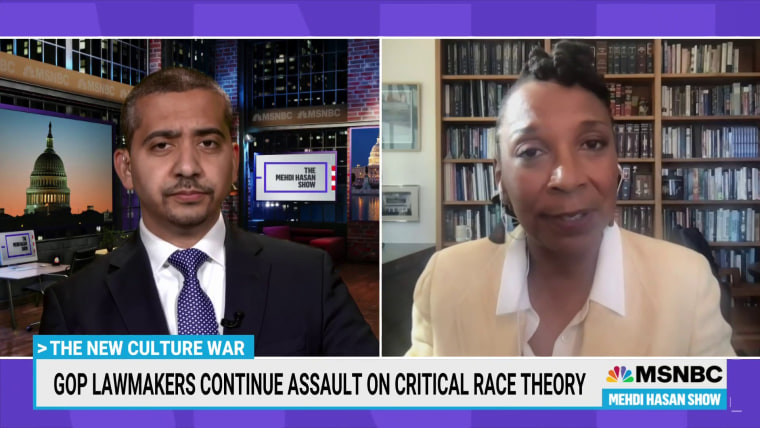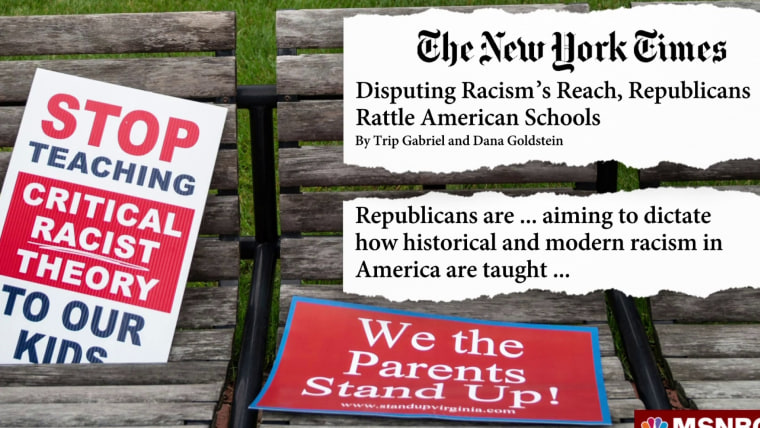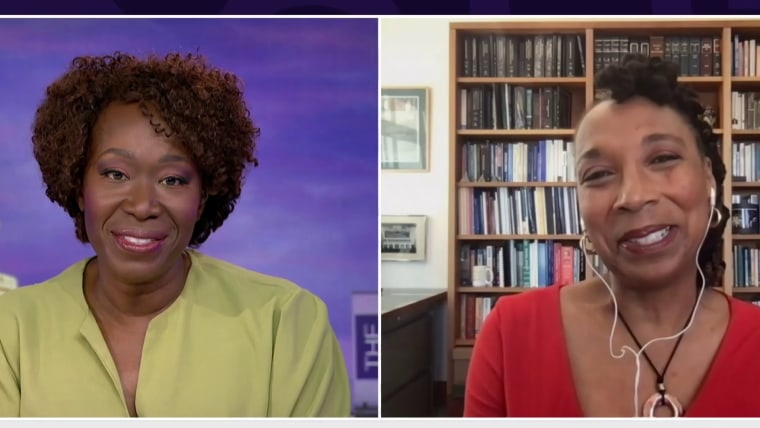In the mid-1960s, in Orange County, California, a consortium of right-wing groups went to war against a textbook. Their ranks included concerned parents, right-wing members of educational societies, and members of the John Birch Society, a far-right extremist group that had risen in prominence by fearmongering about an internal Communist threat in the United States. The textbook in question — "Land of the Free: A History of the United States" — was the work of three progressive historians in response to a 1963 call from the Congress of Racial Equality’s Berkeley chapter to teach more inclusive history in elementary schools. It was a time when the Civil War was almost exclusively taught as a “states' rights” issue, a framing that elided or whitewashed the realities of slavery.
According to historian Elaine Lewinnek, who memorialized the controversy in a 2015 Pacific Historical Review article, "Land of the Free" sought to integrate the struggles and triumphs of minorities throughout U.S. history. Critically, it opened with an admission that the United States had not lived up to its purported ideals from the very beginning, excluding Black people, Native Americans and women from the franchise, and from representation in office for the vast majority of its existence.

Once the book became a mandatory part of the California state public school curriculum, the backlash from right-wing groups was swift and fierce. One John Birch society representative told The New York Times that the book would give white schoolchildren “a guilt complex.” Hundreds of parents aired their grievances to California’s educational authorities, Lewinnek found, protesting at school board meetings. They denounced the book for “stirring up past injustices,” “overrepresenting” Black contributions to American history, and being “unpatriotic” and “communist.” A shadowy extremist group funded a filmstrip attacking the textbook’s lead author, and called their work Education or Indoctrination?
Fifty-four years later, that exact title would be reflected in a headline for the right-wing website The Daily Signal: “Education or Indoctrination? ‘Anti-Racist’ Teaching Sweeps K-12 Schools Targeting ‘Whiteness,'” the site blared in December of 2020.
Like so much else in American history, the current backlash against anti-racist education, collectively called "critical race theory" by right-wing activists in an attempt to obfuscate the issues at hand, is representative of a cyclical push and pull between liberatory movements and the reactionaries that oppose them. Despite the name, there is no unified theory — it’s an intellectual practice that serves to elucidate and interrogate the function of racism in the shaping of our laws and institutions. As the American Bar Association has clarified, it’s a way of “interrogating the role of race and racism in society that emerged in the legal academy and spread to other fields of scholarship.”
This campaign was meant as an antidote to attempts to recontextualize American history with full cognizance of its injustices and malfeasance.
But recently the term has reportedly been made a catch-all bugbear for conservative grievance against anti-racist education in a remarkable effort by a single senior fellow at the conservative Manhattan Institute, Christopher Rufo, who set about seeding a campaign on right-wing media to make the term critical race theory “the perfect villain,” as he told The New Yorker. Working in tandem with right-wing ideologues like Tucker Carlson and then-White House chief of staff Mark Meadows, Rufo says that he enabled a huge "astroturfed" campaign to conflate anti-racist initiatives under the banner of a previously obscure academic term — and to excoriate them through a mix of panic-mongering, xenophobia and a naked appeal to white racism.
This campaign was meant as an antidote to attempts to recontextualize American history with full cognizance of its injustices and malfeasance, such as the New York Times’ 1619 Project. Fighting back meant declaring such initiatives unpatriotic, which was the explicit goal of the Trump administration’s 1776 Commission. The White House hyped the resulting report, which fulminated about the importance of “patriotic education” that “respects the rule of law,” as “a dispositive rebuttal of reckless ‘re-education’ attempts that seek to reframe American history around the idea that the United States is not an exceptional country but an evil one.”
When the struggle over education is cast in such Manichaean terms, it’s easy to understand why reactionary parents might embrace the notion that teaching a more truthful and nuanced view of American history is a dangerous proposition.
In the current fervor, the education of thousands of children — and the freedom of their teachers — is caught up in a wave of vitriolic backlash. Reactionaries operate by stirring up moral panic, seeking to suppress nuanced or thoughtful education under the guise of zealous patriotism. The stakes are high, and the legislation is rolling out in states around the country, in a pattern that has repeated itself over and over again since the dissolution of Jim Crow.

Across the United States, the moral panic Rufo kicked off has swept school districts and state legislatures, spurring a sea of aggrieved parents speaking out against the dual specters of Communist indoctrination and “anti-whiteness.” The Heritage Foundation has put its considerable financial heft behind the push, fearmongering about the “Marxist theory” that purportedly underlies anti-racist education.
From Idaho to South Carolina to Oklahoma, 25 state legislatures have introduced bills to ban critical race theory from classrooms. Worse than their number is their substance, according to EdWeek, these laws — some drafted and under debate, others already failed, and several that have passed — range from banning the 1619 Project curriculum specifically to fining teachers $5,000 for “promoting one side of a controversial topic.” In Kansas, a conservative state legislator has asked state universities to produce a list of classes that teach critical race theory.
In sum, these initiatives form a stunning attack on freedom of speech inside the classroom, a wave of whipped-up grievances that seeks to demonize as Communist and unpatriotic any attempt to include the experiences of minorities throughout American history — or in the words of those Orange County parents from 1966, to “stir up past injustices.” Instead, they ought to lie sleeping, hidden and untaught.
The remedy to any discomfiture among white children at the truthful history of this nation, according to the right, is to vacuum seal children’s minds in an airless, homogenized version of reality. Anything other than the artificially sweetened myth of their own country, one in which any cognizance of past harm is conceded, is a betrayal — and anyone who seeks to teach the truth a threat. A curriculum solely full of happy slaves, barbarous natives and courageous white pioneers might not be, as the conservative Heritage Foundation put it, “dispiriting” for white children. But it would be a lie, and a lie is a perilous foundation for a life, let alone a nation.

